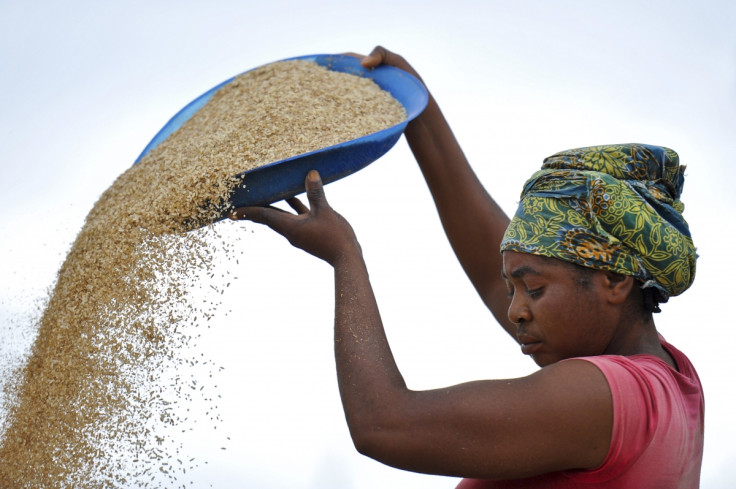Solution to World Hunger? Scientists Sequence Genome of African Rice to Solve 'Nine Billion People Question'

An international team of researchers have sequenced the complete genome of African rice, enabling the development of new rice varieties that are better able to cope with increasing environmental stresses to help solve global hunger issues.
The genetic information will also enhance understanding of the growing patterns of African rice.
The effort to sequence the African rice genome was led by Rod Wing, director of the Genomics Institute at the University of Arizona.
"Rice feeds half the world, making it the most important food crop," Wing said, as reported in Science Daily.
"Rice will play a key role in helping to solve what we call the nine billion people question," he added, referring to predictions of what the world's population will increase to - many of whom are likely to be living in areas where food is scarce - by 2050.
The question lies in how to grow enough food to feed the world's population and prevent the health, economic and social problems associated with hunger and malnutrition.
The research allows scientists and agriculturalists to search for ways to cross Asian and African species to develop new varieties of rice with the high-yield traits of Asian rice and the hardiness of African rice.
"African rice is once more at the forefront of cultivation strategies that aim to confront climate change and food availability challenges," said co-author Judith Carney, a professor of geography at at the University of California.
The African rice genome is important because many of the genes code for traits that make African rice resistant to environmental stress, such as long periods of drought, high salinity in the soils and flooding.
"The idea is to create a super-rice that will be higher yielding but will have less of an environmental impact -- such as varieties that require less water, fertiliser and pesticides," said Wing.
Hardy, high-yield crops will become increasingly vital for human survival as the world faces the environmental effects of climate change and an ever-growing global population.
In analysing the 33,000 genes that make up the African rice genome, the researchers discovered that during the process of domestication, Africans and Asians independently selected for many of the same genetic traits in the two species, such as higher nutrition.
"By understanding the entire genus at a genome level, we have a whole new pool of genetic variation that can be used to combat pests and plant pathogens," said Wing.
"After decades of promoting high-yielding Asian varieties, the emphasis now is on developing types that combine the former's higher yields with Oryza glaberrima's (African rice) tolerance of environmental stress," Carney told Science 2.0.
The research was published online in Nature Genetics.
© Copyright IBTimes 2025. All rights reserved.






















